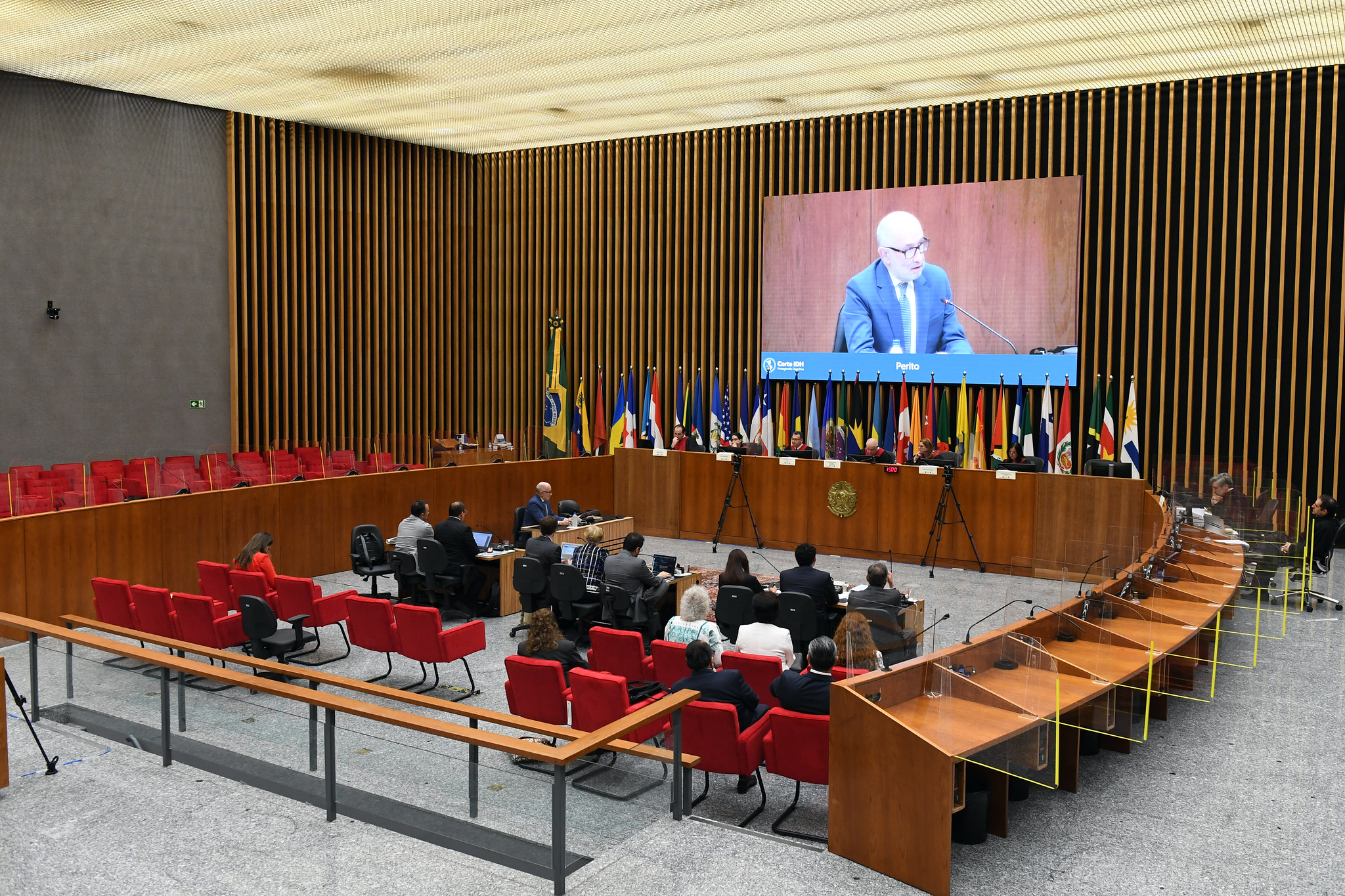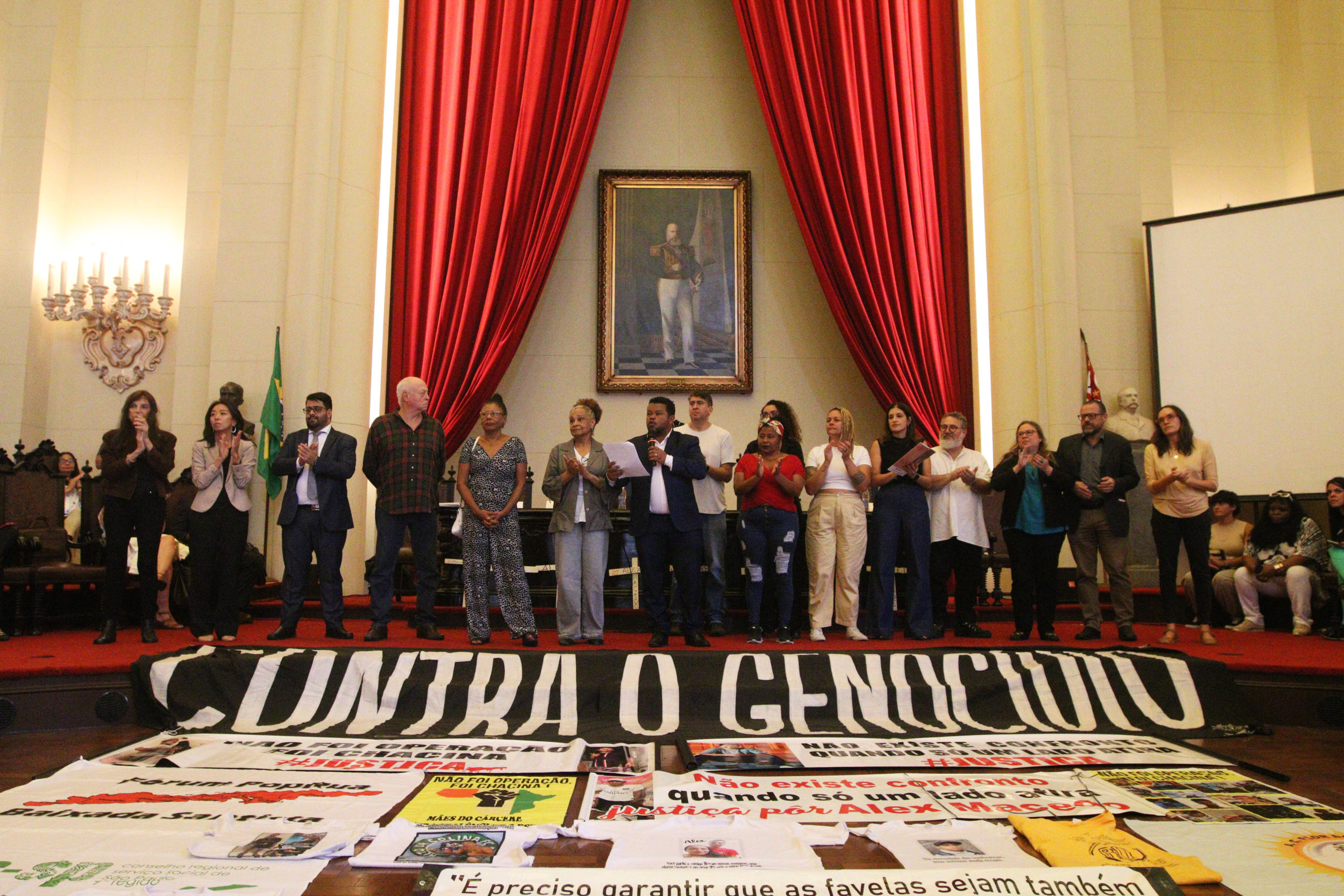Green light for the arms treaty
Foreign Relations Commission of the Lower House approves ratification of the agreement that regulates the international arms market
.jpg)
The Foreign Relations and National Defense Commission of the Lower House of Congress approved this morning, December 16, a report by Congressman Eduardo Barbosa in favor of ratifying the ATT (Arms Trade Treaty). The treaty had been pending in the commission for more than a year.
The ATT is the first global agreement to regulate international trade in conventional weapons – a category that includes everything from pistols to tanks. Brazil is the world’s fourth largest exporter of small arms and it was one of the first countries to sign the treaty, in June 2013. However, successive delays in the ratification process have prevented the country from joining the group of States Parties that are responsible for deciding on the rules of procedure for the agreement.
The second Conference of States Parties will take place in mid-2016 in Geneva, Switzerland. “If it does not ratify the ATT in time, Brazil will once again only have a supporting role in this extremely important process,” said Camila Asano, coordinator of the Foreign Policy program at Conectas. “Staying outside the ATT has serious consequences for the image that the country is trying to project as a responsible arms exporter,” she added.
Before reaching the Commission, the treaty took more than 17 months to be passed by the Executive. Following today’s approval, it will proceed to the Public Security and Combat of Organized Crime Commission and the Constitution and Justice Commission before being voted in a full session of the house. If approved by members of Congress, it will be sent to the Senate and then return to the Executive for the process to be concluded.
See three reasons why Brazil should ratify the ATT:
1. Firearm deaths keep rising in Brazil
According to the most recent Violence Map, a survey conducted by the federal government in partnership with Unesco, Brazil registered more than 42,000 firearm deaths in 2012. An average of 116 per day.
The survey also emphasizes the alarming growth of 387% in the number of fatal shooting victims from 1980 to 2012. This number rises to 463% in the 15 to 29 age bracket.
The ratification of the Arms Trade Treaty can help prevent weapons exported by Brazil to neighboring countries from returning to the country illegally and fueling violence. It will also help combat the diversion of arms that enter Brazil from other countries for use in crime.

2. The ATT is a mechanism to stop the sale of arms to countries that commit crimes against humanity and/or that are under multilateral arms embargoes
The treaty bans countries from transferring weapons to governments that could use them to commit atrocity crimes and crimes against humanity, such as genocide. It also bans exports to countries that are under arms embargoes.
The agreement further requires the exporting country to assess the risk that an arms transfer will be diverted and fuel, in other countries, transnational crimes and serious human rights violations, particularly against women and children.
In 2013, a group of UN experts concluded that Brazilian-made non-lethal weapons were being used in Ivory Coast, a country that since 2004 has been under an arms embargo imposed by the UN Security Council.
Currently, Brazil’s military weapons and ammunition export policy is regulated by a secret decree that dates back to the military dictatorship: PNEMEM – the National Export Policy for Military Equipment. The contents of the document, created in 1974, have never been released.
The “Barometer”, created by the Small Arms Survey, lists the transparency level of the world’s major arms exporters. In the most recent survey, published in 2014, Brazil ranked 43rd on the list of 53 States, just above China (44th).
Ratifying the ATT will help Brazil improve its procedures for the authorization of arms exports.

3. Brazil is the world’s 4th largest arms exporter
According to the Small Arms Survey, Brazil is the world’s fourth largest exporter of small arms and light weapons, behind only United States, Italy and Germany, and ahead of countries such as Russia, China and Israel.
The survey reveals that, in 2012, Brazilian arms industry exports totaled US$374 million – an increase of 295% from 2001.
Countries considered Brazil’s competitors, such as Italy and Germany, have already ratified the treaty and as such they already have the “ATT seal” of exporters that adhere to the rules of responsibility. Staying outside the ATT projects the image of Brazil as a vulnerable arms exporter, since it does not figure among the countries that observe the minimum rules established by the agreement.



